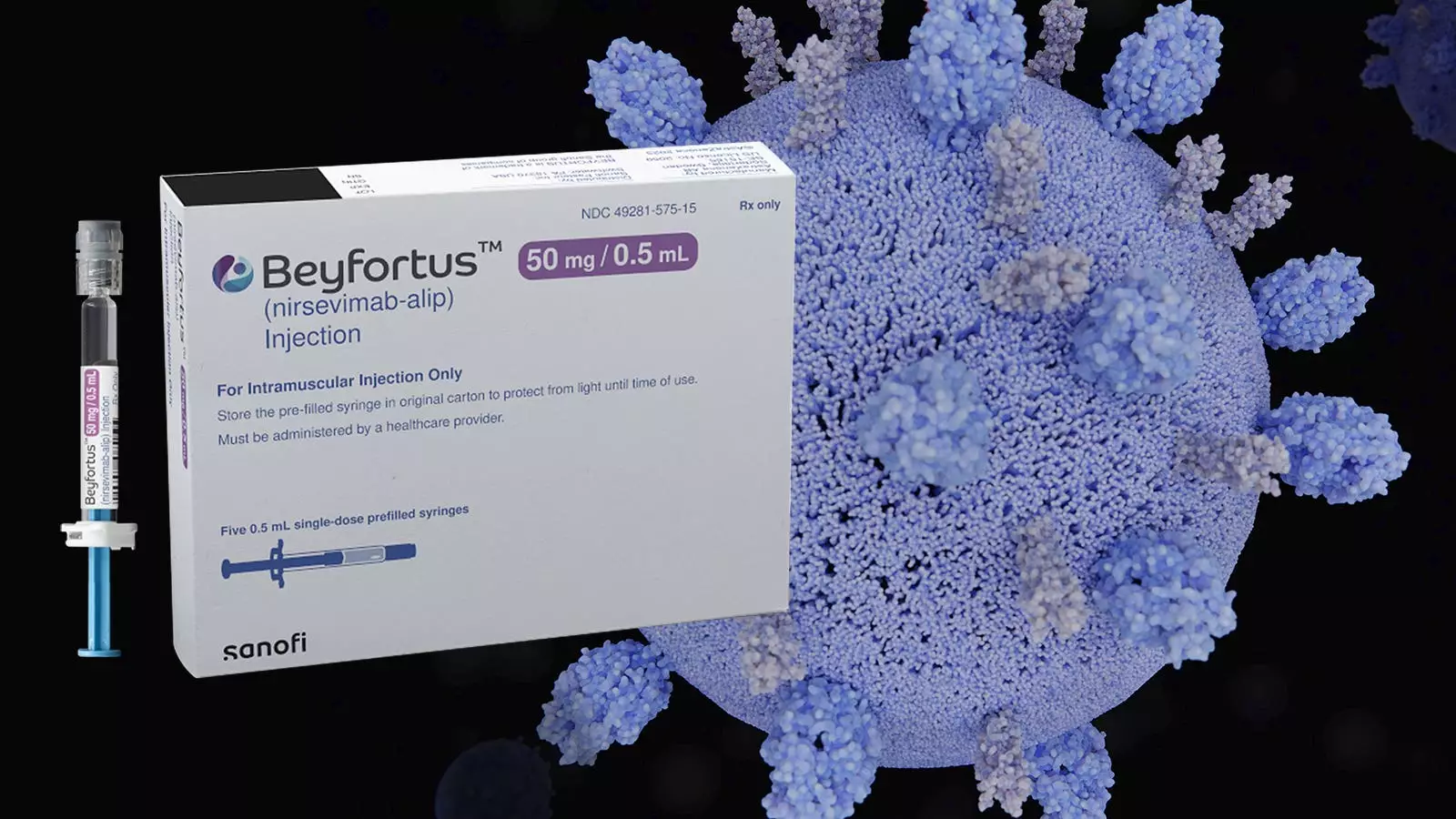The recent French prospective ENVIE study has shed light on the protective properties of the monoclonal antibody nirsevimab (Beyfortus) in young infants against respiratory syncytial virus (RSV) related hospitalizations. This study, published in the New England Journal of Medicine, reported promising results which indicate that nirsevimab is effective in preventing RSV-associated bronchiolitis in infants under 12 months of age.
According to researchers, nirsevimab was estimated to be 83% effective in preventing hospitalization from RSV bronchiolitis, 69.6% effective against RSV bronchiolitis leading to pediatric intensive care unit (PICU) admission, and 67.2% effective against RSV-associated bronchiolitis requiring mechanical ventilation. These results suggest that nirsevimab could be a valuable tool in reducing the burden of severe RSV infections in young infants.
The findings of the ENVIE study highlight the real-world effectiveness of nirsevimab in preventing RSV-associated hospitalizations among infants with severe cases. The study also noted that nirsevimab’s effectiveness was slightly lower in infants with risk factors for bronchiolitis, indicating the need for further research in this population.
Dr. Natasha Halasa from Vanderbilt University emphasized the importance of ensuring that nirsevimab reaches all infants, including those in low- and middle-income countries where RSV-related deaths are more prevalent. The results of this study have paved the way for the FDA approval of nirsevimab for passive immunization in infants against RSV, with recommendations from the CDC’s Advisory Committee on Immunization Practices following suit.
While the ENVIE study has provided valuable insights into the effectiveness of nirsevimab, the authors acknowledged several limitations of their research. The observational case-control study design restricted the ability to draw causative conclusions, and the relatively short assessment period may have impacted the results. Future research should focus on addressing these limitations and exploring the long-term effectiveness of nirsevimab in preventing RSV infections.
The ENVIE study has contributed to our understanding of the potential of nirsevimab in reducing RSV-related hospitalizations in young infants. Further research and public health initiatives are needed to ensure widespread access to nirsevimab and improve outcomes for infants at risk of severe RSV infections.


Leave a Reply